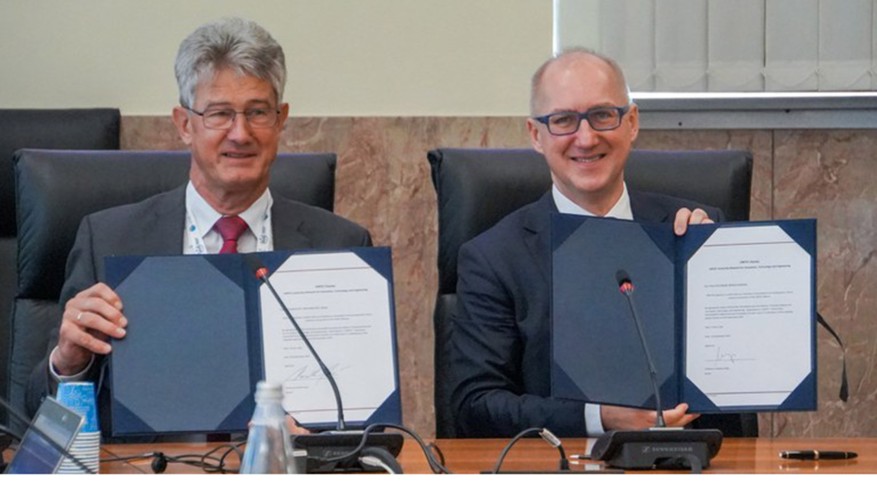New Unite! partners
TU Graz and Wroclaw Tech are now official Unite! partners
2022/10/10
On September 20th, during the VI Unite! Dialogue hosted by Politecnico di Torino. Prof. Dr. Harald Kainz, Rector of the Graz University of Technology, and Prof. Dr. Arkadiusz Wójs, President of the Wroclaw University of Science and Technology, signed the Unite! Charter confirming the full inclusion of both universities to the Unite! alliance. The signature act has taken place during the Unite! Governing Platform in the presence of Unite!'s president Tanja Brühl and all the rectors/presidents of the different Unite! partner universities.

The event marks the end of the process of onboarding the new members into Unite!, ongoing since December 2021, and the beginning of even closer collaboration to become a model for a European University of innovation, technology and engineering.
Unite!/mho
The European Universities Initiative
The European Universities Initiative was launched in 2019 to push for the establishment of a European Education Area by 2025. European Universities are transnational alliances of higher education institutions from across the EU that share a long-term strategy, promoting European values and identity. The initiative is designed to significantly strengthen student and staff mobility and to foster the quality, inclusion and competitiveness of European higher education.
In response to a first call of the Erasmus+ Programme in 2019, the first 17 alliances were selected for a 3-year pilot phase to lay the foundations for future European universities. Unite! has been among these first 17. Another 24 alliances followed in the 2nd call in 2020.
Unite!’s new funding starting end of 2022 falls into the calls of the further roll out of the European Universities Initiative. It plans to increase the number of European Universities to 60 with more than 500 universities by mid-2024, supported under Erasmus+ with an indicative budget of EUR 1.1 billion for the period 2021-2027. The aim is to develop and share a common long-term structural, sustainable and systemic cooperation on education, research and innovation, creating European inter-university campuses where students, staff and researchers from all parts of Europe can enjoy seamless mobility and create new knowledge together, across countries and disciplines.”
